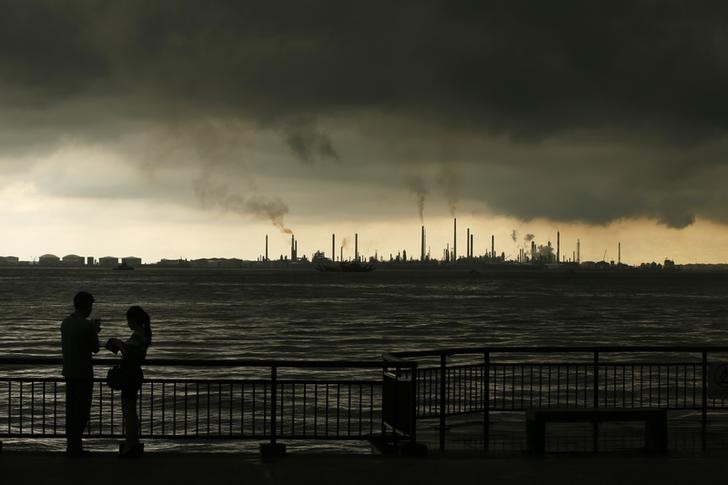* Euro zone factories buzzing in Feb as demand soars
* OPEC output falls in Feb on Saudi additional cut - survey
* OPEC+ meets on Thursday to discuss output (Adds comments, updates prices, new throughout)
By Laila Kearney
NEW YORK, March 1 (Reuters) - Oil prices were up on Monday as fears that Chinese oil crude consumption is slowing overshadowed rising optimism about COVID-19 vaccinations and a U.S. economic stimulus package increasing fuel demand.
Brent crude LCOc1 fell 10 cents, or 0.2%, to $64.32 a barrel by 12:45 p.m. EST (1745 GMT), and U.S. West Texas Intermediate (WTI) crude CLc1 gained 37 cents, or 0.6%, to $61.13 a barrel.
Both contracts finished February 18% higher.
China's factory activity growth slipped to a nine-month low in February, sounding alarms over Chinese crude buying and pressuring oil prices.
"One negative is more and more talk about Chinese oil demand maybe faltering, that they bought all the oil that they're going to need for a while," said Phil Flynn, senior analyst at Price Futures Group in Chicago. "There's some talk that their strategic reserves are filled up, and so some people are betting against the Chinese continuing to drive oil prices."
Support for the market came from rising COVID-19 vaccinations stirring up economic activity along with a $1.9 trillion coronavirus-related relief package passed by the U.S. House of Representatives on Saturday. approved by the Senate, the stimulus package would pay for vaccines and medical supplies, and send a new round of emergency financial aid to households and small businesses, which will have a direct impact on energy demand.
The approval of Johnson & Johnson (NYSE:JNJ)'s JNJ.N COVID-19 shot also buoyed the economic outlook. of China, some manufacturing data was positive, helping to keep prices from moving lower. German activity hit its highest level in more than three years and Euro zone factory activity raced along, driven by rising demand. oil output fell in February as a voluntary cut by Saudi Arabia added to agreed reductions under a pact with allies, a Reuters survey found, ending a run of seven consecutive monthly increases. Organization of the Petroleum Exporting Countries and its allies, a group known as OPEC+, meet on Thursday and could discuss allowing as much as 1.5 million barrels per day of crude back into the market. analysts said OPEC+ needs to avoid surprising traders by releasing too much supply.
"There is a large amount of speculative money in oil at the moment, so they will want to avoid any action that will see (those investors) running for the exit," the analysts said.
